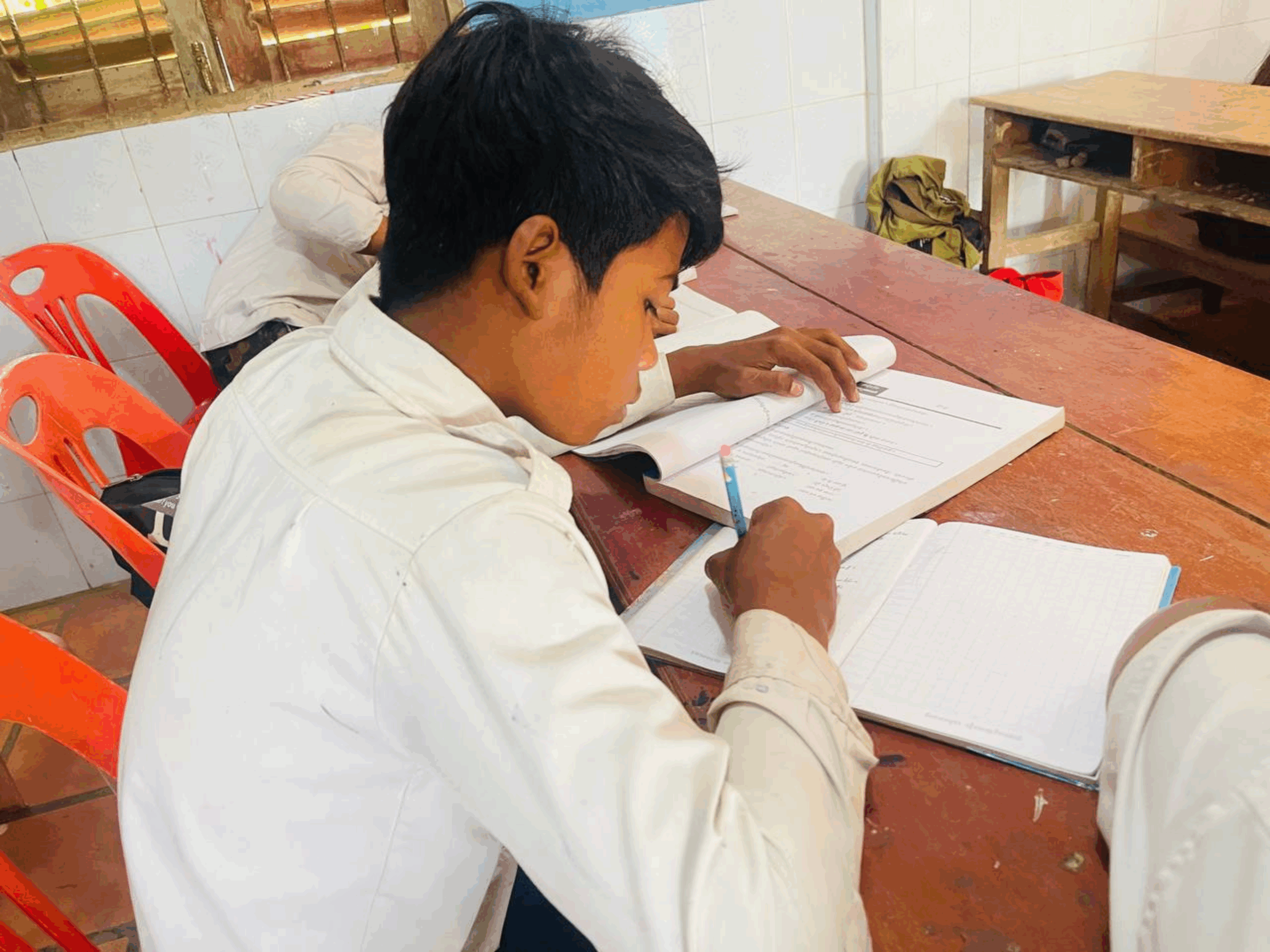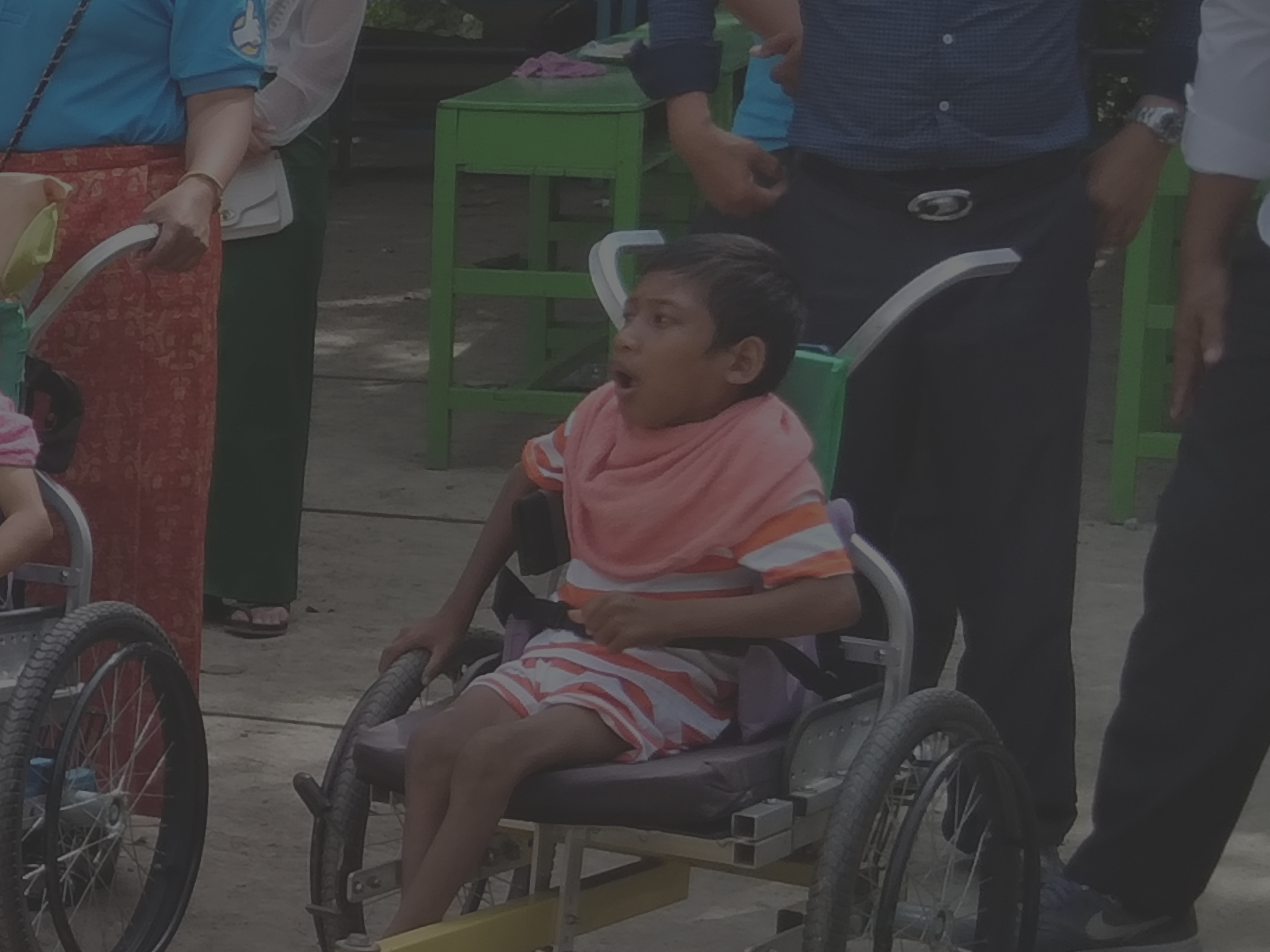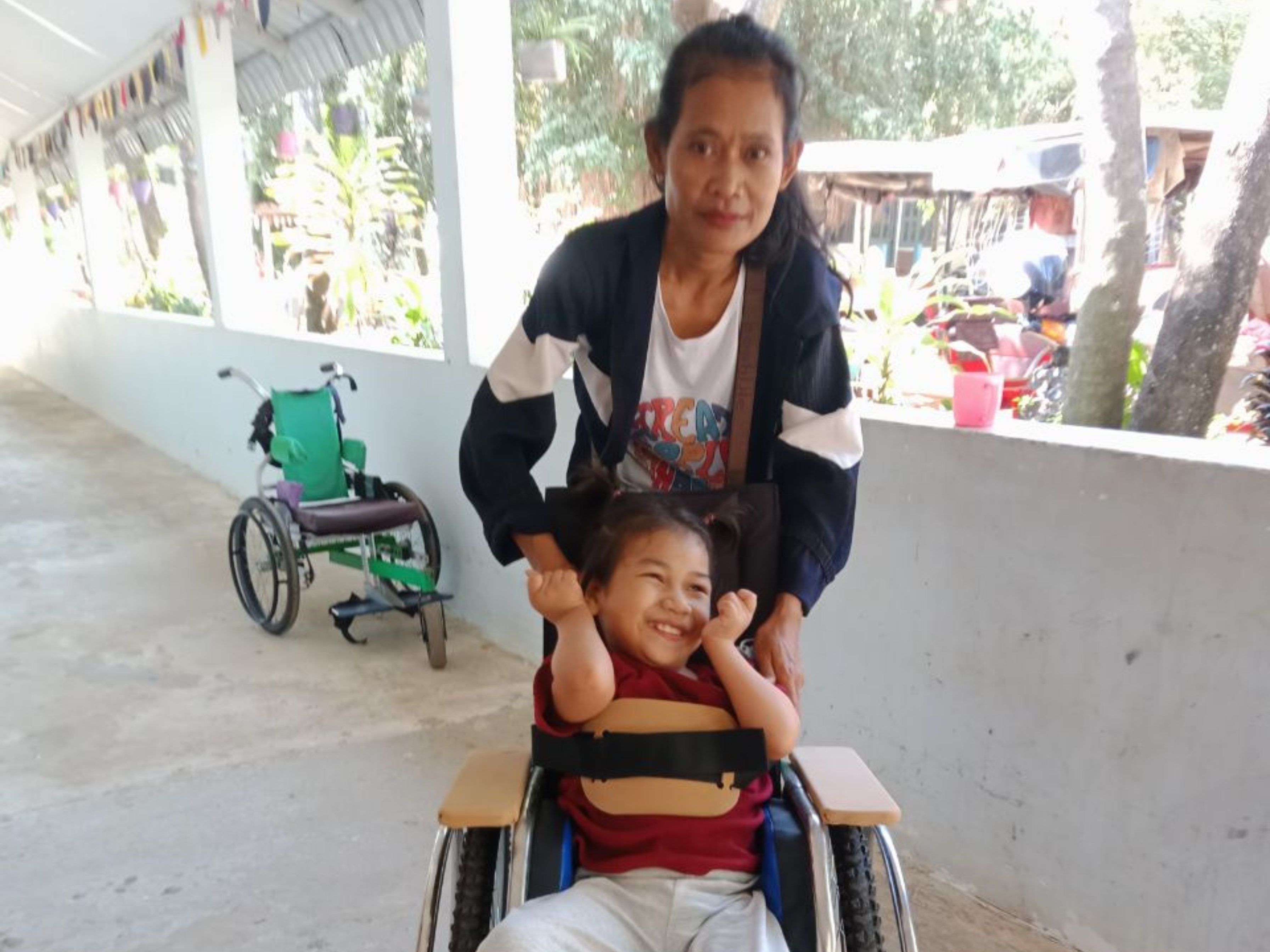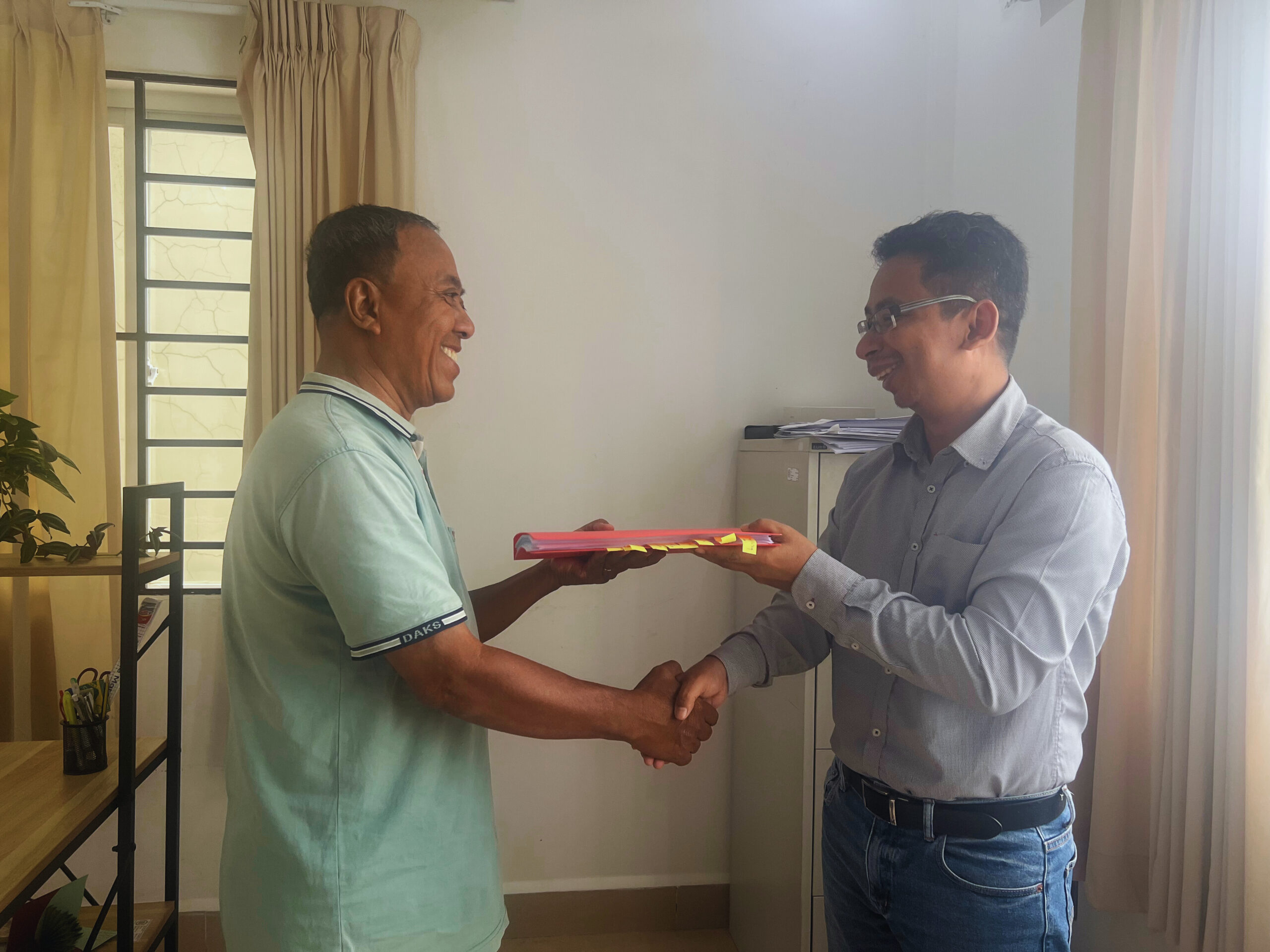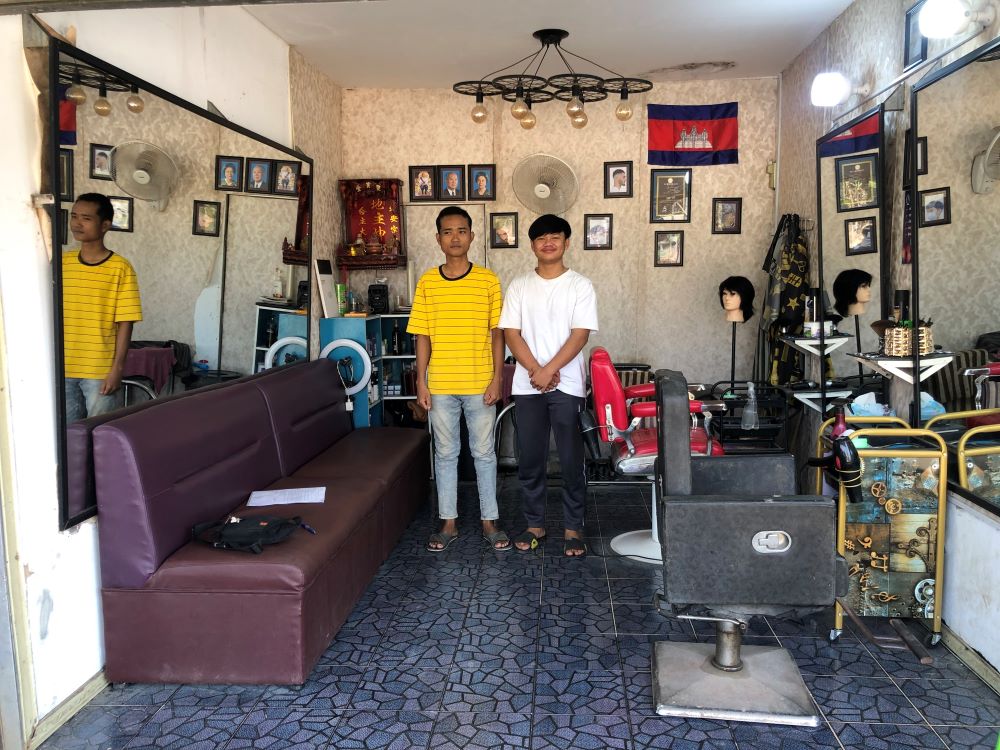Access to education is a right, not a privilege. We know that a person’s level of education has a direct impact on their opportunities in life. According to child experts, children who drop out of school to begin making money are highly unlikely to re-enrol in school later. Therefore, it is extremely important to instil good learning habits early by getting children enrolled in school as young as possible. Over 5,000 15-year-old Cambodian students were interviewed in December 2017 and almost 98% reported that doing well in school was important and would lead to better jobs in the future. Unfortunately, education in Cambodia is still a work in progress and support for vulnerable children, in particular, is lacking.
Education in Cambodia has improved dramatically in recent years. The Khmer Rouge decimated the education system. Today, the government estimates that nationwide, primary schools have a 97% enrolment rate. However, the system is still in development and large swaths of the population are being left behind in their education.
While public primary school tuition is free, families still have to pay for school supplies and uniforms. Most also have to arrange transportation for their children to and from school every day. For many working families, this is not feasible and these children are the most vulnerable to falling behind in their studies. Irregular attendance or having to drop out and work to help support their family increase their risk of exploitation.
Why Non-Formal Education (NFE)?
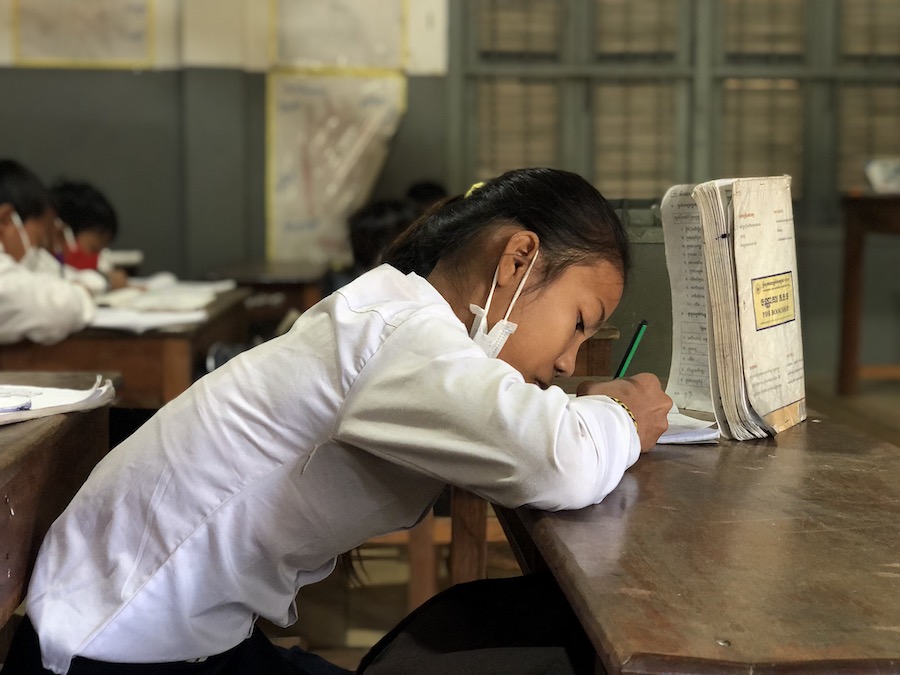
Tola, 9, and Sreyya, 14, both live with their single mothers and siblings in small rental rooms in Poipet. Tola’s mother earns money by selling vegetables she and Tola collect from abandoned plots of land. Sreyya’s mother owns a small salon where she works as a hairdresser. Both children frequently help their mothers earn extra income at the expense of receiving their own education.
Children are denied access to education in Cambodia for a variety of reasons. It is still common for children, like Tola and Sreyya, to leave school to help support their families. Children leave school when their parents must migrate to find better work. Unfortunately, many are also trafficked and subjected to forced labour. Children living in rural areas struggle with transportation and the inadequacies of public schools. Getting children to continue to secondary education remains a challenge.
Government efforts to address these issues have increased in recent years but there are still gaps to be filled. Damnok Toek established its Non-Formal Education (NFE) program to address these gaps. This program provides education to vulnerable children from the community or those who are street-living, street-working, victims of trafficking or are residing in our alternative care centres.
Often these children lack the documents necessary to enrol in school. With limited to no previous schooling, they are far behind their peers, which further increases the risk of them dropping out. Our NFE program uses holistic approaches, like Essence of Learning techniques, to address this issue. These techniques are designed to provide accelerated lessons to marginalised children and get them back on track with public education in Cambodia. Damnok Toek currently has two NFE programs: one in Neak Loeung that educates through Grade 3 and one in Poipet that educates through Grade 6.
A New Day for Education in Cambodia
Outreach efforts are essential to reaching the most vulnerable children. Damnok Toek staff host community awareness sessions where families are invited to come and learn about the program. Tola and Sreyya both discovered Damnok Toek through these sessions.
Tola discovered NFE at an International Children’s Day event. “This was the first time that I got free food and information on how to get school materials and a uniform provided to me,” he says. “My mum brought me to register at Damnok Toek because I didn’t want to stay at home. I wanted to study with my friends. I knew that studying is not easy but I wanted to study so I could get a good job in the future and not be poor.”
Making a Real Difference
Children are evaluated to assess their literacy and numeracy levels to determine their grade equivalency. Once in class, students learn subjects based on the Cambodian national curriculum. This includes Khmer language, mathematics, science, history, Khmer customs and morality, and arts. NFE also teaches life skills including hygiene, reproductive health, children’s rights, critical thinking, and problem-solving.
Each student is assigned a case manager who provides psycho-social support as they progress through NFE. Children are supported in the reintegration process into the public school system when they are ready. Damnok Toek continues to support students even after they are back in public school. Case managers ensure students are registered properly and have uniforms, books, stationery and study materials. Social workers are a key component of this project. They conduct follow-up visits with reintegrated students while also providing counselling for children and their families if required.
Sreyya says of the program, “If I didn’t have Damnok Toek, my mother would have brought me to work and earn money in Thailand. Now, I am in grade 6 and hope Damnok Toek will continue to support me in secondary school. After, then I can find a good job and help my family.”
Read More
